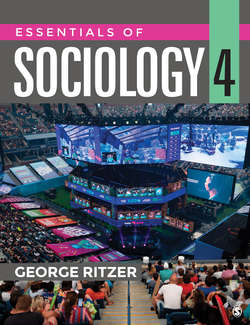Читать книгу Essentials of Sociology - George Ritzer - Страница 177
На сайте Литреса книга снята с продажи.
Adam Reich and Peter Bearman
ОглавлениеFrom Working for Respect: Community and Conflict at Walmart, by Adam Reich and Peter Bearman. Copyright ©2018 Columbia University Press. Reprinted with permission of the publisher.
Adam Reich and Peter Bearman traveled to Walmart stores across the country to investigate the experiences of low-wage workers in large, “hyperrational” organizations. Walmart is a “sprawling bureaucracy” that employs over 1.4 million people in the United States. Like other bureaucracies, Walmart is founded on rational-legal authority and a clearly defined division of labor to ensure maximum efficiency. Based on algorithms from sales data collected in its headquarters in Bentonville, Arkansas, Walmart micromanages inventory, allocates work hours to regional managers, and even controls the temperatures in its stores across the country. Its efficient use of technologies, such as barcode scans to track inventory, helps Walmart calculate what products it needs in its stores and predict restocking needs for specific items. Walmart has vertically integrated its operations, which means it manages the production and distribution of many of the products it sells. This allows it to exert precise control over its supply chain and keep its prices lower than most of its competitors.
However, bureaucracies are not always efficient, and as Reich and Bearman’s study of Walmart stores demonstrates, they may even be irrational. The daily experiences of Walmart workers are unpredictable due to the irrationality of consumers and arbitrary authority of store managers. To maximize profits, work schedules are determined by the minimal staff level needed to meet consumer demand. Store managers use algorithms of hourly sales data to set work schedules. However, consumers do not always conform to the algorithms. This results in Walmart employees being pulled, in a matter of minutes, from one task, such as stocking shelves, and pushed into another task, like checking out customers. Many workers resent managers who appear to have indiscriminate authority over when they work and the tasks they perform after they punch their time cards. This lack of job stability angers many workers, who feel like they lack autonomy and respect. Reich and Bearman (2018, 146) suggest that Walmart workers and other employees in the retail sector, who are paid notoriously low wages, “care more intensely about dignity than wages.” ●
Visit edge.sagepub.com/ritzeressentials4e to
Learn more about Reich and Bearman’s research findings, including how they involved their students in their study of Walmart workers.
Each type of authority can spawn its own organizational form. However, rational-legal authority is most associated with bureaucracy. In comparison to the bureaucracy, organizations based on traditional and charismatic authority are generally less rational (IS’s organizational structure may have been, at least for a time, an exception). They are, for example, less efficient than is the highly efficient bureaucracy.
